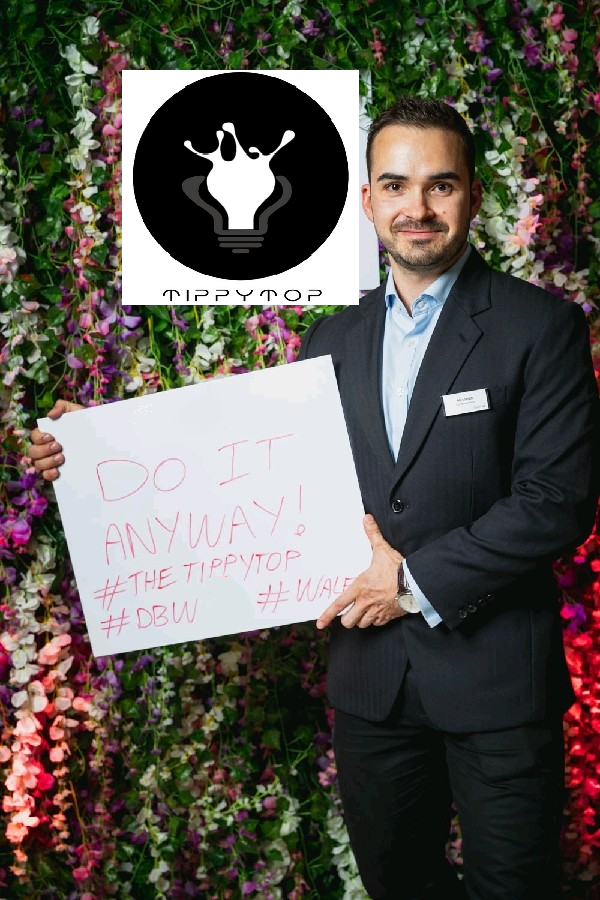
Right, you’ve stress-tested your business idea, convinced your co-founders about this incredible new plan and drawn up some basic legal agreements. At some stage you’ll need to start thinking about expanding the team.
To be clear, we are dealing with expanding your team, not plugging the deficiencies of the founders. If you find yourself in the situation where you don’t have a co-founder to do the marketing in a consumer-focused business then...
To be clear, we are dealing with expanding your team, not plugging the deficiencies of the founders. If you find yourself in the situation where you don’t have a co-founder to do the marketing in a consumer-focused business then...
...go back to the blog post on Evaluating Your Business Idea because you have an incomplete team! Remember that investors buy into teams not individuals so don’t scupper your chance of raising funding from the outset.
There’s loads of information out there about recruiting and incentivising people so I’m not going to bore you with the same old HR rhetoric but will instead try to offer some fresh perspective.
These are my top 11 tips on how you can hire and keep the best team in your business:
1. Be incredibly careful who you hire – invest time recruiting the right people
Don’t assume that everyone is created equally. This doesn’t of course mean that you should only hire people from top schools or big brand-name companies but the contrary. Often people that have had a difficult career journey are of a far higher calibre than those that have toed the line.
Delve into the person’s background and find out what motivates them, how hard they really work and what they’ve sacrificed to be sitting in front of you. Unlike the stock market, with people, past performance is a fairly reliable indicator of the future so dig deep.
One of the best interviews I ever went to was when the company owner asked me to step through my whole life, starting from when I was born. He said it’s the only way to truly understand who a person is, what motivates them and what it will be like working together. The process created such a strong connection during the interview and at the end, it felt like he knew me better than many close friends. When interviewing other people, I now use this technique time and time again.
2. Understand whether the candidate thinks in a structured manner or constantly jumps to new ideas
My guess is that you’re probably not looking to recruit another entrepreneur or ‘dreamer’ for somewhere like Google where their job is to sit in an inspiring room all day and imagine how Google will become the forerunner in commercial space travel. No. Thought not.
You’re probably looking for someone who thinks in a structured (often referred to as Cartesian) manner. Management consulting firms, private equity houses and investment banking outfits all look for these types of brains because they create order in chaos and are able to consistently deliver. Case studies or competency-based interviews are one way to test this but you’ll get a pretty good idea by just listening to the candidate and following their story. Do they jump around or does the sequence flow logically?
3. Get MBAs because they’ll be willing to work for little money and are reasonably intelligent
Many MBAs nowadays want to work in start-ups because they are disillusioned by banking and consulting. Offer them a small salary and equity upside and you’ll have some good talent on-board.
MBAs have a brain but more importantly, they know how to work hard. It is not intelligence but rather determination that makes the good, great.
4. Get someone who understands science and business and can talk to both parties
Many engineering graduates subsequently go to business school because early in their careers they are exposed to the inefficiencies in communication between the technical teams and management. This was certainly my experience and one of my motivations to go to study business – so that I could close this silly and extremely costly gap.
5. Think outside the box - for a sales role, you want a used-car salesman just out of prison
Find someone who makes the sale with you still wondering what happened. I thought of this the other day while walking around Milan where people of African descent were selling coloured pieces of string as arm bangles. No-one goes up to these gentlemen to ask to buy one so instead the vendors place themselves in strategic locations and while walking around, you suddenly find an attractive bangle wrapped around your wrist. You have to be really hardened to take it off and not pay the enterprising entrepreneur a small fee. If they can earn let’s say between 2 and 5 Euros for some string that costs cents, imagine they had something valuable to sell like cars or houses etc. They would outsell everyone, at a better margin and be multi-millionaires. I want people like that in my organisation!
I must also make mention of Jordan Belfort, The Wolf of Wall Street, who recruited his friends that were former pot-dealers to help him very successfully sell penny-stocks. His business practices were clearly unethical and illegal but there was nothing wrong with his recruitment strategy!
There’s loads of information out there about recruiting and incentivising people so I’m not going to bore you with the same old HR rhetoric but will instead try to offer some fresh perspective.
These are my top 11 tips on how you can hire and keep the best team in your business:
1. Be incredibly careful who you hire – invest time recruiting the right people
Don’t assume that everyone is created equally. This doesn’t of course mean that you should only hire people from top schools or big brand-name companies but the contrary. Often people that have had a difficult career journey are of a far higher calibre than those that have toed the line.
Delve into the person’s background and find out what motivates them, how hard they really work and what they’ve sacrificed to be sitting in front of you. Unlike the stock market, with people, past performance is a fairly reliable indicator of the future so dig deep.
One of the best interviews I ever went to was when the company owner asked me to step through my whole life, starting from when I was born. He said it’s the only way to truly understand who a person is, what motivates them and what it will be like working together. The process created such a strong connection during the interview and at the end, it felt like he knew me better than many close friends. When interviewing other people, I now use this technique time and time again.
2. Understand whether the candidate thinks in a structured manner or constantly jumps to new ideas
My guess is that you’re probably not looking to recruit another entrepreneur or ‘dreamer’ for somewhere like Google where their job is to sit in an inspiring room all day and imagine how Google will become the forerunner in commercial space travel. No. Thought not.
You’re probably looking for someone who thinks in a structured (often referred to as Cartesian) manner. Management consulting firms, private equity houses and investment banking outfits all look for these types of brains because they create order in chaos and are able to consistently deliver. Case studies or competency-based interviews are one way to test this but you’ll get a pretty good idea by just listening to the candidate and following their story. Do they jump around or does the sequence flow logically?
3. Get MBAs because they’ll be willing to work for little money and are reasonably intelligent
Many MBAs nowadays want to work in start-ups because they are disillusioned by banking and consulting. Offer them a small salary and equity upside and you’ll have some good talent on-board.
MBAs have a brain but more importantly, they know how to work hard. It is not intelligence but rather determination that makes the good, great.
4. Get someone who understands science and business and can talk to both parties
Many engineering graduates subsequently go to business school because early in their careers they are exposed to the inefficiencies in communication between the technical teams and management. This was certainly my experience and one of my motivations to go to study business – so that I could close this silly and extremely costly gap.
5. Think outside the box - for a sales role, you want a used-car salesman just out of prison
Find someone who makes the sale with you still wondering what happened. I thought of this the other day while walking around Milan where people of African descent were selling coloured pieces of string as arm bangles. No-one goes up to these gentlemen to ask to buy one so instead the vendors place themselves in strategic locations and while walking around, you suddenly find an attractive bangle wrapped around your wrist. You have to be really hardened to take it off and not pay the enterprising entrepreneur a small fee. If they can earn let’s say between 2 and 5 Euros for some string that costs cents, imagine they had something valuable to sell like cars or houses etc. They would outsell everyone, at a better margin and be multi-millionaires. I want people like that in my organisation!
I must also make mention of Jordan Belfort, The Wolf of Wall Street, who recruited his friends that were former pot-dealers to help him very successfully sell penny-stocks. His business practices were clearly unethical and illegal but there was nothing wrong with his recruitment strategy!
6. Pay well – remember that good people are cheap
If person A wants a salary of £50k and person B wants £60k, the difference is clearly 20%. This may seem substantial but let’s consider performance for a second. Poor performing employees usually only perform at 60% of your expectation, whereas a great employee will exceed your expectations at around 120%. Assuming person B is the great employee, it means that they only want £500 (£60k/120%) per % of output. Person A on the other hand wants £833 (£50k/60%) per % of output. Who is cheaper now?
This doesn’t even take into account the pleasure of working with Person B and the added stress and frustration you would experience with person A.
This reminds me of a story one of my friends told me when he quoted his salary expectations during a job interview and then saw the interviewers flinch. He responded to their sceptical looks by saying “you pay peanuts, you get monkeys....” He said that they all stopped, looked at each other and then all let out an incredulous long laugh – he couldn’t believe he actually said it either!
No surprises, he didn’t get the job with the reason given that he didn’t fit the culture of the organisation. He subsequently heard that their business model was to underpay people who needed experience and that they usually paid less than 50% of what he was asking for.... Culture misfit, he couldn’t agree more, he said that he didn't want to work with colleagues who undervalue themselves and employers who take advantage.
To quote one of my prior blogs from the BVCA High Growth 2016 Conference, the CEO of Disruptive Capital Finance said that you should "Overpay to get the right TEAM – even if it kills your cash flow in the short-term, it is always worth it." Enough said.
7. Give stock options not high salaries
Employees that believe in you and your idea will see the value in the equity. They will work with you to ensure the company does well. Be very wary of someone who wants a big salary and doesn’t care much about equity because they will milk your organisation for everything it is worth and run for the hills when the going gets tough.
Remember that motivating people is not a finite exercise. People need to be constantly compelled to do better so maybe set a basic incentive and a hurdle incentive. Human nature is to aspire to targets as nobody wants to be a failure. If one of your employees ignores your [reasonable] targets, please do swiftly fire them as there is probably no hope.
8. Hire people that are different, better and brighter than you
Fill all your weaknesses with other people’s skills. Before you start your recruiting exercise, do a rigorous assessment of your team’s capabilities and skills so you know what you’re looking for. After interviewing the right candidate, your team should be saying to you “we can learn from them.”
If you constantly try to be the smartest person in the room, A: you won’t get any smarter and B: your organisations performance will be hamstrung by solely relying on your capabilities.
One of the most important things taught in an MBA is the value of teamwork. In my MBA syndicate group, we had:
- a Medical Doctor;
- a Banker;
- a Quantity Surveyor;
- an HR practitioner;
- an Operations Expert;
- an Entrepreneur/Marketeer; and
- an Engineer (me).
When given a particular group assignment, we drew upon the strengths and diversity of each individual and delivered some solid assignments. You quickly realised you would never be as good as anyone else in their respective areas of expertise and that the best results are achieved when you surround yourself with clever, competent people who are different, and better than you.
9. Treat your employees like family – people do not leave their jobs, they leave their bosses
Most businesses are simple in that you’re just hiring out some assets, whether it be people’s time in consulting or technology in a SAAS (software as a service) firm. Success is all about motivating the people in the business and the cornerstone of this is looking after your employees. Make sure you have a great relationship with them and that they always feel you have their best interests at heart.
In 2016, the Chartered Management Institute shortlisted a publication for book of the year called 5 Conversations: How to transform trust, engagement and performance at work. Their research confirms that the single most important work satisfaction factor for employees is their relationship with their manager. Good relationships are predicted on trust and fostered by frequent honest two-way dialogue. Ultimately this leads to engaged employees and there is a direct correlation between the level of employee engagement and revenue growth, profit, productivity, innovation, customer satisfaction and low employee turnover.
The other day I read an infographic that captured employee motivation perfectly. It said that talented employees will stay because they are:
- Paid well;
- Appreciated;
- Listened to;
- Promoted;
- Involved in decisions;
- Mentored; and
- Challenged.
10. It’s OK to fire people – admit when the team isn’t working
It might be tough to fire someone and you may feel like you are being really insensitive to that person but consider how unfair you are being on your whole team if you leave one rotten apple in the cart. Everyone makes choices in life and if an employee is not working, it is more often than not, their fault. Rather fire them and give them donations if you want to be philanthropic, but definitely don’t let them poison your organisation.
11. If you’re a cash-strapped start-up, test people out for free
Here’s at least two ways you can accomplish this:
- Ask friends who work at design companies to do the branding for nothing until your product is launched – if they do a good job and your idea is successful, they will have guaranteed themselves a strong pipeline of work.
- Ask university students to develop your tech for free / run small competitions – then you can employ the good ones once you’re in business.
It goes without saying that if you have the cash then don’t be a Scrooge McDuck and pay people fairly for their services.
Conclusion
Finding the right team requires a considerable time and energy investment. Human nature dictates that you’ll probably only look for someone at the last minute when you are snowed under with work. The temptation will be to employ the first few people you interview so you need to be disciplined and hold out for those superstars who will stick with you and transform your business.
Once you bring them on board, look after them, well. There’s a great saying by Sir Richard Branson, “train people well enough that they can leave, treat them well enough that they don’t want to.” Never a truer word spoken!
I’ll finish off with a story about a friend of mine who works at a big engineering firm. I often ask him if he likes his job and what he wants to do in 10 years’ time. His answer contrasts everyone else’s because he simply says, that he does not care what he does really, as long as the office environment is cool and he has a good time with his work colleagues, while still doing some hardcore work of course.
So sometimes retention can be simple, just create an enjoyable work environment and be nice!
Chat soon,
Alex @thetippytopblog
Please Like, Share, Follow and Subscribe!
Twitter | Facebook | Instagram | LinkedIn | Snap | BlogLovin' | Medium | Pinterest
Tags:
#recruitment #peoplemanagement #teams




 RSS Feed
RSS Feed